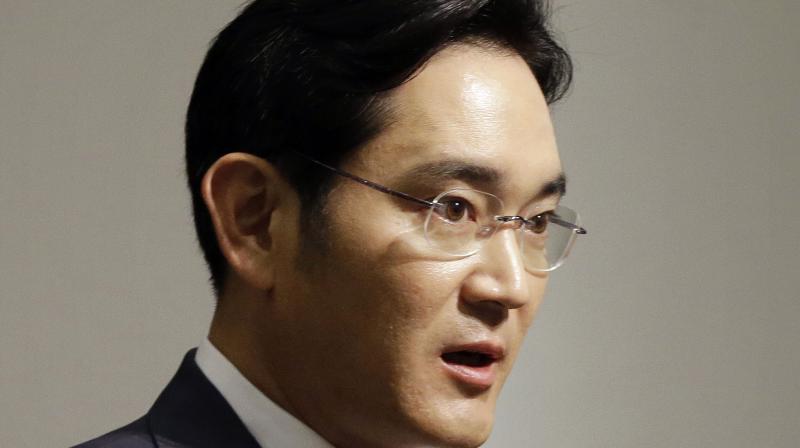Samsung scion joins board as profits tank on Note 7

Seoul: Samsung heir apparent Lee Jae-Yong took a major step towards control of the family-run conglomerate on Thursday, joining the board as the company reported a 30 percent profit dive following a highly damaging recall crisis.
The move is being seen as a coronation of sorts of the 48-year-old Lee, who is already vice chairman of Samsung Electronics and has seen his influence grow since his father, Samsung patriarch Lee Kun-hee, suffered a heart attack and was hospitalised in 2014.
Board chairman Kwon Oh-Hyun said Lee's elevation would give him a greater say in decision-making at the highest level and help foster "long-term, sustainable value" for Samsung shareholders.
The nomination was approved by an extraordinary shareholder meeting, which also focused on the recall fiasco surrounding the flagship Galaxy Note 7 handset that has hammered the reputation of the world's largest smartphone maker.
"We can now say that Lee's regime has officially begun," said Lee Chaiwon, chief investment officer at Korea Value Asset Management Co.
"I think a new era is coming. The company will become more market-friendly," Lee told Bloomberg News.Samsung's share price rose more than two percent in morning trade, but then fell back to close up 0.4 percent at 1.57 million won.
Profit plunge
The shareholder meeting began just hours after Samsung announced a third-quarter operating profit of 5.2 trillion won ($4.6 billion) -- down from 7.3 trillion won a year ago.
The slump was in line with a revised earning estimate two weeks earlier after it killed off the Note 7 due to devices overheating and bursting into flames. The decision to discontinue production of a model aimed at competing with arch-rival Apple's iPhone was a devastating move for the company, which prides itself on the quality production of cutting-edge technology.
Scrapping the Note 7 saw earnings of the core mobile business drop off a cliff, with the mobile division's operating profit for the third quarter down almost 98 percent on-quarter at just 100 billion won.
Co-chief executive J.K. Shin apologised to shareholders and said it was "unacceptable" that the company failed to meet its own quality assurance standards.
"Samsung Electronics will revisit and re-examine every step of our engineering, manufacturing and quality control processes," Shin said.
"We know we must work hard to earn back your trust and we are committed to doing just that," he added. The impact of the Note 7 debacle on the electronics giant's brand name is still being calculated, with Samsung itself having predicted another $3 billion-plus in lost profits over the next two quarters.
Spotlight
"The mobile business hit bottom, but it should pull off a partial recovery in the fourth quarter," said Greg Roh, an analyst at HMC Investment Securities. "But we'll have to wait until the second quarter of next year for a full recovery with the launch of the Galaxy 8 smartphone in March," Roh said.
The founding Lee family controls the Samsung group companies, with interests that extend into financial services, hotels, biopharmaceuticals and fashion, through a complex network of cross ownership.
As the newest and most high-profile board member, Lee will have to deal with the harsh spotlight the Note 7 recall shone on the company's management style.
"It was a problem caused not only by technical errors but also by rigid corporate governance structure," said Kim Sang-Jo, a Samsung shareholder and head of the Seoul-based monitoring group Solidarity for Economic Reform.
"All the executives here are, I'm sorry to say this, those hired by (the Lee family) and remarks by such executives will not be enough to earn the trust of the market," Kim told AFP at the shareholder meeting.
"Only messages delivered by Lee himself will be significant .... so I hope he will come out in public to talk about these pressing issues of how to improve corporate governance and corporate culture," he said.
Lee did not attend the shareholder meeting. Despite the pall cast over the smartphone division, Samsung's display and chip businesses -- which supply screens and memory chips to TV makers and rival phone brands -- has held up.
Operating profit in the semiconductor division stood at 3.37 trillion won in the third quarter, up 28 percent on-quarter.

